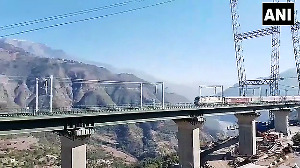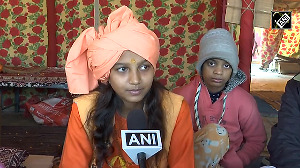Expressing concern over the lack of satisfactory progress in recovery of non-performing assets, a parliamentary committee has asked banks to streamline their loan recovery policy, and evolve innovative methods such as setting up of special teams to recover bad loans.
Noting that recoveries had marginally increased to Rs 20,705 crore (Rs 207.05 billion) in March 2004 from Rs 18,730 crore (Rs 187.30 billion) in March 2003, the committee on estimates said, "This shows the sordid state of affairs prevailing in banks as far as recovery of bad loans is concerned."
The committee said banks should explore the possibility of franchising the job of recovering bad loans to a private agency, as has been done by some private banks such as ICICI bank and HDFC Bank.
It recommended banks emulate the State Bank of India, which had roped in detective agencies with expertise in financial investigation to recover NPAs.
The committee also said the efficacy of existing penal provisions under Section 403 and 415 of the Indian Penal Code in relation to action against willful defaulters could be reviewed, and legal and other procedural changes made to contain the menace of willful default effectively.
With regard to corporate debt restructuring, the committee was of the opinion that there was a need for rationalising the tenure of packages approved under the CDR mechanism from the present four time slabs.
"The feasibility of reducing time slabs from 4 to 3 should be examined, along with the possibility of limiting the maximum tenure of a package for repayment of loan to 15 years," it said.
It said the finance ministry should take up the issue of restricting the coverage of bank officials coming under the purview of the central vigilance commissioner, so that they were able to concentrate better on the core banking activity of lending credit and recovery of loans, without being hamstrung.
Disagreeing with the perception of the finance ministry that the performance of debt recovery tribunals had improved subsequent to the amendments in the DRT Act in 2000, the committee said, "In view of the ever-burgeoning pending cases of NPAs in the DRTs, the working group, headed by Vinod Rai, to examine the functioning of DRTs, can also examine the need for setting up more DRTs in the country."







 © 2025 Rediff.com -
© 2025 Rediff.com -